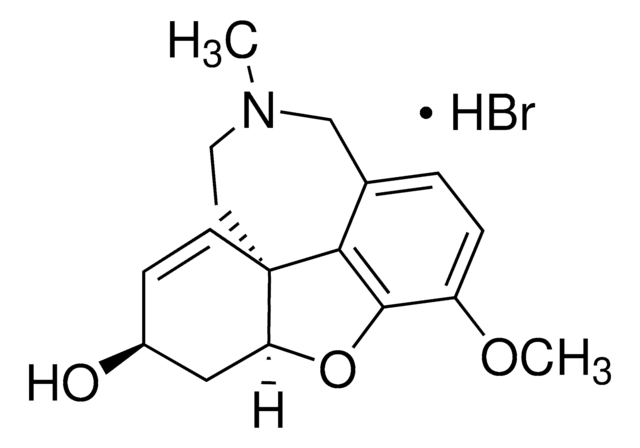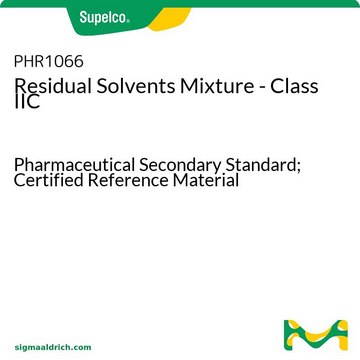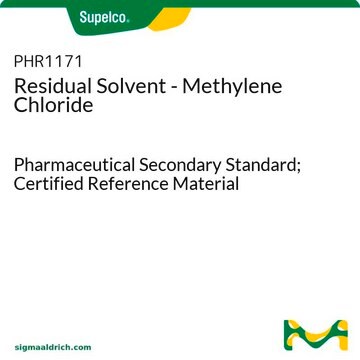1601500
USP
Residual Solvent Class 2 - N,N-Dimethylformamide
United States Pharmacopeia (USP) Reference Standard
Synonym(s):
N,N-Dimethylformamide solution
About This Item
Recommended Products
grade
pharmaceutical primary standard
manufacturer/tradename
USP
application(s)
pharmaceutical (small molecule)
format
neat
InChI
1S/C3H7NO/c1-4(2)3-5/h3H,1-2H3
InChI key
ZMXDDKWLCZADIW-UHFFFAOYSA-N
General description
Application
Analysis Note
Other Notes
related product
Signal Word
Danger
Hazard Statements
Precautionary Statements
Hazard Classifications
Repr. 1B
Storage Class Code
6.1C - Combustible acute toxic Cat.3 / toxic compounds or compounds which causing chronic effects
WGK
WGK 1
Flash Point(F)
188.6 °F - closed cup
Flash Point(C)
87 °C - closed cup
Certificates of Analysis (COA)
Search for Certificates of Analysis (COA) by entering the products Lot/Batch Number. Lot and Batch Numbers can be found on a product’s label following the words ‘Lot’ or ‘Batch’.
Already Own This Product?
Find documentation for the products that you have recently purchased in the Document Library.
Customers Also Viewed
Our team of scientists has experience in all areas of research including Life Science, Material Science, Chemical Synthesis, Chromatography, Analytical and many others.
Contact Technical Service




